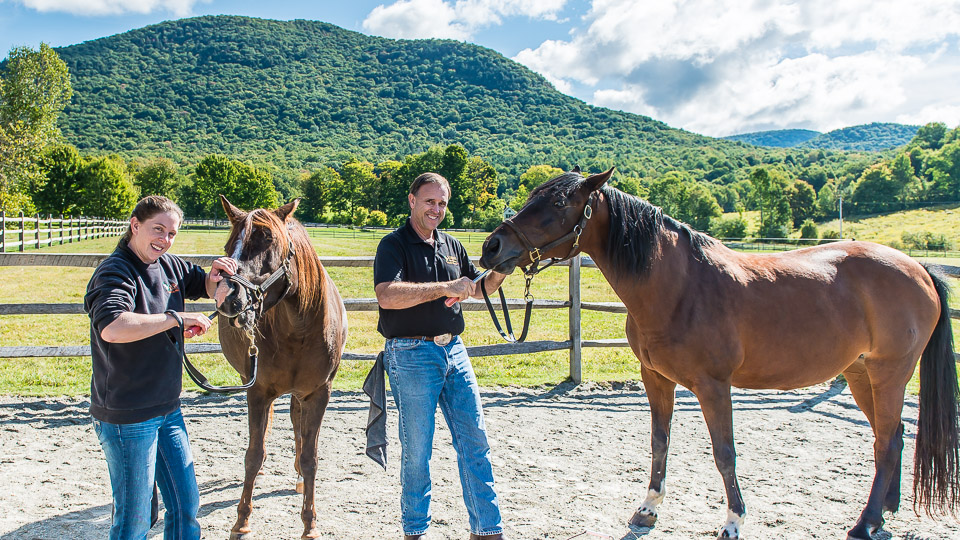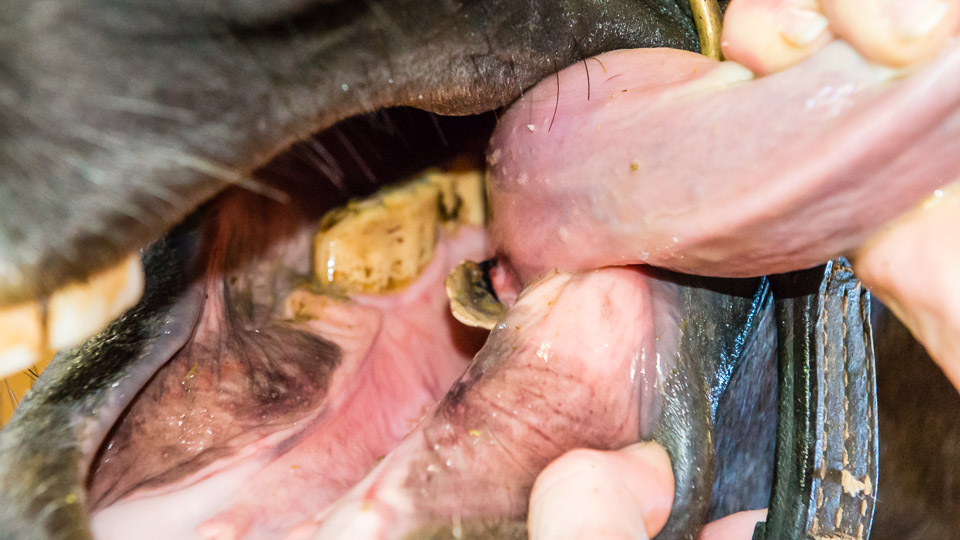
Top 10 Things To Know Inside Your Horse’s Mouth – a HorseTalk™ Webcast

Tarter encrusted foreign object on the base of the tongue. The piece of tarter was the size of a guitar pick and just as thin.
Discussion:
Here are 10 things you should know inside the mouth:
1) Horses chew a lot
- Chew 25,000 times per day on average
- Chewing causes points
2) Horses are continuous eaters
- No gall bladder – no need to store bile
- Hypsodont teeth – continuously erupting
3) The purpose of chewing
- Create a swallowable bolus
- Role of incisors
- Role of canine teeth
- Role of wolf teeth
- Role of cheek teeth
4) Why do the teeth need floating? How often?
- Chewing causes points but the tongue strops them into a razor’s edge
- The individual threshold of pain
- The purpose of the tongue
- The hardness of the teeth
- What they chew, and how often
5) Young horses mouths
- Caps – the deciduous teeth of the incisors and pre-molars
- Wolf teeth – to pull or not to pull
- Blind wolf teeth
6) Old horses mouths
- End stage teeth
- Quidding
- Prevention plus genetics
- Feeding toothless horses
7) What else can happen inside the mouth beside sharp points
- Cavities
- Split teeth
- Abscessed tooth roots
- EOTRH
- Foreign objects
- Trauma
- Ulcers
8) Signs of dental problems
- Quidding
- Bit objections
- Change in chewing behavior – abnormal positioning, altered rate
- Insidious onset – often no signs especially with good riders
9) The different processes of dentistry and who should perform it
- Floating is husbandry
- Extractions and medication is veterinary medicine
- Hand floating versus power tools – all roads lead to Rome
- But where is Rome?
- Is all dentistry the same?
10) Why we prefer Horsemanship Dentistry™
- 90% only need floating
- 92% without medication
- We have the horse become a willing partner in the process
- Dentistry is a process, not an event
- Our goal is to remove all sources of oral pain


Responses